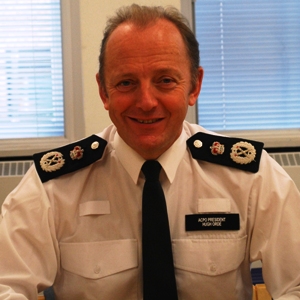Index relies entirely on the support of donors and readers to do its work.
Help us keep amplifying censored voices today.
David Fowler / Shutterstock.com
There are some fears that the funeral procession of Margaret Thatcher tomorrow could turn into a debacle of protest and arrest.
The Observer reported on Sunday that Commander Christine Jones, the police officer who will be in charge on the day, “warned” that police officers will have the power to arrest protesters under Section 5 of the Public Order Act on the day.
This isn’t exactly unusual; after all, the police always have the law at their disposal.
But it’s worth noting how problematic Section 5 of the Public Order Act can be, particularly in situations like tomorrow’s.
The section makes it an offence to engage in language (including writing on a placard) or behaviour “within the hearing or sight of a person likely to be caused harassment, alarm or distress thereby”.
This has led to problems for free speech and free protest in the past, from the arrest of Christian preachers to the conviction of Al Muhajiroun poppy-burner Emdadur Choudhury.
Considering the mix of Thatcher fans, tourists and events junkies who will line the route of the funeral cortege tomorrow along with the expected protesters, it is conceivable that any protest could be construed as likely to cause “harassment, alarm or distress” to someone. The issue is whether that likelihood alone enough to cause the police to intervene? Or should the deployment of the Public Order Act be limited to times when there are genuine threats to public order?
Tomorrow’s funeral, while not a “state funeral” as such, is most certainly a public event.
And being a public event, it will be open to protest: the police officers on duty tomorrow will need to bear in mind that they have a duty not just to safeguard the funeral proceedings, but to safeguard free expression too.
Padraig Reidy is senior writer at Index on Censorship. @mePadraigReidy
David Fowler / Shutterstock.com
There are some fears that the funeral procession of Margaret Thatcher tomorrow could turn into a debacle of protest and arrest.
The Observer reported on Sunday that Commander Christine Jones, the police officer who will be in charge on the day, “warned” that police officers will have the power to arrest protesters under Section 5 of the Public Order Act on the day.
This isn’t exactly unusual; after all, the police always have the law at their disposal.
But it’s worth noting how problematic Section 5 of the Public Order Act can be, particularly in situations like tomorrow’s.
The section makes it an offence to engage in language (including writing on a placard) or behaviour “within the hearing or sight of a person likely to be caused harassment, alarm or distress thereby”.
This has led to problems for free speech and free protest in the past, from the arrest of Christian preachers to the conviction of Al Muhajiroun poppy-burner Emdadur Choudhury.
Considering the mix of Thatcher fans, tourists and events junkies who will line the route of the funeral cortege tomorrow along with the expected protesters, it is conceivable that any protest could be construed as likely to cause “harassment, alarm or distress” to someone. The issue is whether that likelihood alone enough to cause the police to intervene? Or should the deployment of the Public Order Act be limited to times when there are genuine threats to public order?
Tomorrow’s funeral, while not a “state funeral” as such, is most certainly a public event.
And being a public event, it will be open to protest: the police officers on duty tomorrow will need to bear in mind that they have a duty not just to safeguard the funeral proceedings, but to safeguard free expression too.
Padraig Reidy is senior writer at Index on Censorship. @mePadraigReidy
The Director of Public Prosecutions talks to Index about Twitter, Facebook and free speech

 Index on Censorship’s Kirsty Hughes talks to Sir Hugh Orde, one of the UK’s most senior police officers, about protest, public order and politics
Index on Censorship’s Kirsty Hughes talks to Sir Hugh Orde, one of the UK’s most senior police officers, about protest, public order and politics
(more…)